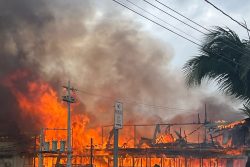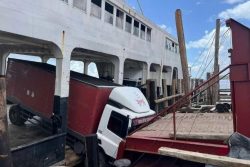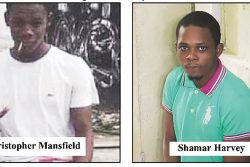The International Decade for People of African Descent Assembly-Guyana (IDPADA-G) is continuing in its efforts to forge ties with the global African community with a view to empowerment.
In a release yesterday, IDPADA-G reported on its attendance at the 32nd Session of the UN Working Group of Experts on People of African Descent held in Geneva Switzerland from May 1 to 5. There, IDPADA-G joined civil society leaders from Africa, Asia, Latin America, the Caribbean, and North America, to participate in the session focussed on the economic empowerment of people of African descent.
At the opening session on Monday, May 1, Guyanese member of the Working Group Dr Barbara Reynolds was elected to serve as its new chairperson and presided over a very productive 32nd session that was intended “to examine, how systemic racism and global economic structures and financial mechanisms affect the economic and financial empowerment of people of African descent, tracing the trajectories and impacts of enslavement, colonisation, segregation, and apartheid over the centuries, and providing an analysis of anticipated future trends to draw conclusions and make recommendations,” the release said. Also serving as a panelist in these discussions was Guyanese attorney Nigel Hughes.
The release said that in discussions over the 5-day session, the Working Group drew attention to the agency of people of African descent as one of the strongest forces in their own economic empowerment and addressed reparations for people of African descent. The session also included in-depth discussions on the multiple and diverse forms of racial inequality and racial discrimination that fuel poverty, economic inequality, and violations of the inalienable human rights of people of African descent across the globe. Participants explored the manifestations of racism, racial discrimination, xenophobia, and related intolerance in various sectors and their impact on the right of people of African descent “to participate in, contribute to, and enjoy economic, social, cultural and political development, and live in communities where their human rights and fundamental freedoms can be fully realised,” the release said.
Further, in addition to the formal discussions of the working group, IDPADA-G took the opportunity of the global network of civil society organisations in attendance to convene a separate panel discussion at the UN titled: “Guyana Today: African Descendants fight for survival in a multi-ethnic society,” the release said. The organisation’s CEO Olive Sampson along with Hughes presented information on the current state of the African Guyanese community, the work of IDPADA-G, the status of its funding, and plans to continue pursuing its mission of achieving the goals of the decade. During the lively question and answer session that followed, participants explored in greater depth the current state of the African Guyanese community, Guyana’s history of ethnic division and the resurgence in Guyana of the neo-colonial strategy of weaponising these divisions for wealth accumulation, it said.
At a second side event for representatives of several countries visited by the Working Group, IDPADA-G advisor and lead consultant on the development of the organisation’s Strategic Plan, responded to participants’ interest in IDPADA-G’s work and how it could serve as a model to be replicated by African communities across the Diaspora, the release added.







